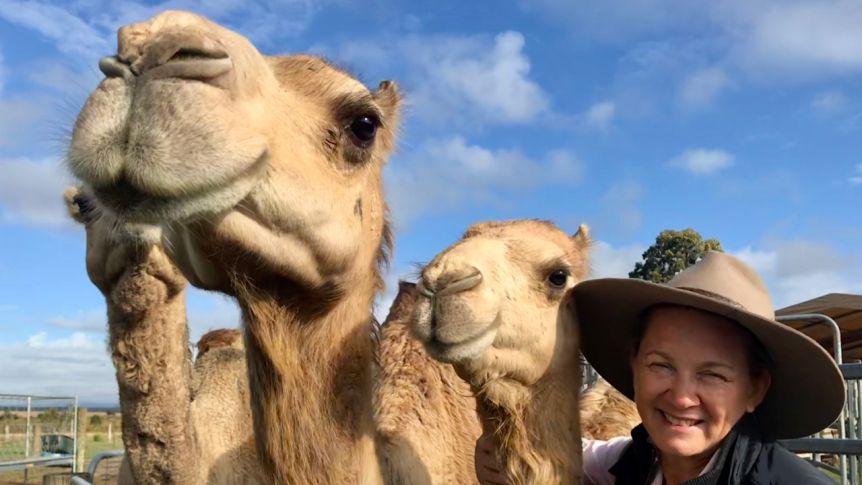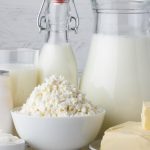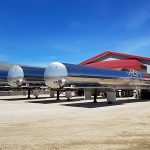
Key points:
A Sunshine Coast camel dairy of its type in the world to gain organic certification
Camel milk is expensive to buy and expensive to produce
Camel calves are kept with their mothers until the cows choose to wean them
QCamel owner Lauren Brisbane said the camel dairy was still the only one in the world to gain organic certification and the price reflected the cost of producing ethical, sustainable milk.
“It took us five years to achieve that so it’s not an easy thing to do but we’re really proud of it,” Ms Brisbane said.
“It’s what we want to produce for our customers and it’s also the way we want to treat our camels.”
The camel farmer said the pasteurised milk was prized for being easy to digest and in China and the United States non-organic camel milk could sell for $40 a litre.
“We’ve got customers waiting for us in the export market — COVID put a little bit of a dampener on that,” Ms Brisbane said.
“We’ve also diversified into a skincare range and we’ve just exported our first delivery into Singapore so we’re really excited about that.”
Date nights with camels
Agritourism is becoming increasingly popular for the business with Bindi Irwin among the dairy’s visitors.
https://www.facebook.com/QCamelDairy/photos/a.1007180769295657/2725872134093170/?type=3
Ms Brisbane said camels had unfairly earned a reputation for being bad-tempered spitters.
Her animals are prized for their gentle affectionate natures and follow her around the paddock, hoping for a pat.
The farm, based in Bells Creek on the Sunshine Coast, has diversified to also offer regular cuddle-a-camel days and camel tours for singles nights.
Unlike most dairy calves, camel calves are kept with their mothers for up to two years, with the choice of when to wean them left up to the mothers.
“We certainly don’t milk the girls until their babies are two months old and reach all their milestones,” Ms Brisbane said.
“When we’ve got really little babies they stand next to mum [during milking] and they usually have a teat [too]— it’s far more relaxing for both mum and the baby.”
Camels have four teats and produce less than half the milk obtained from dairy cows.
The dairy owns 44 camels, 20 of which are currently being milked with that number expected to increase to 35 over the next few months.
Camel rides on tourists’ ‘to-do’ lists
Further north at Scrubby Creek near Gympie, Camelot Dairies has taken on a new Brisbane-based business partner, experienced cameleer Lionel Keegan, to expand its herd size to 55 and try to meet booming demand.
Owner Melanie Fitzgibbon says the dairy is selling out of milk every week and has dozens of repeat orders.
“People who want to buy pasteurised milk direct from the farm haven’t been able to do that,” she said.
“Because our retail outlets are selling so much at the moment and have been for the last six months — it’s been crazy.”
The dairy also runs camel rides on Noosa’s North Shore and at the Gympie Show Society’s farmers’ markets every fortnight.
Camel cart rides will soon be on the agenda.
“We’ve have a lot of Queenslanders holiday in their state and we’ve been big on their list of to-dos,” Ms Fitzgibbon said.
The dairy also produces camel milk products including soap, moisturiser and body butter.

























